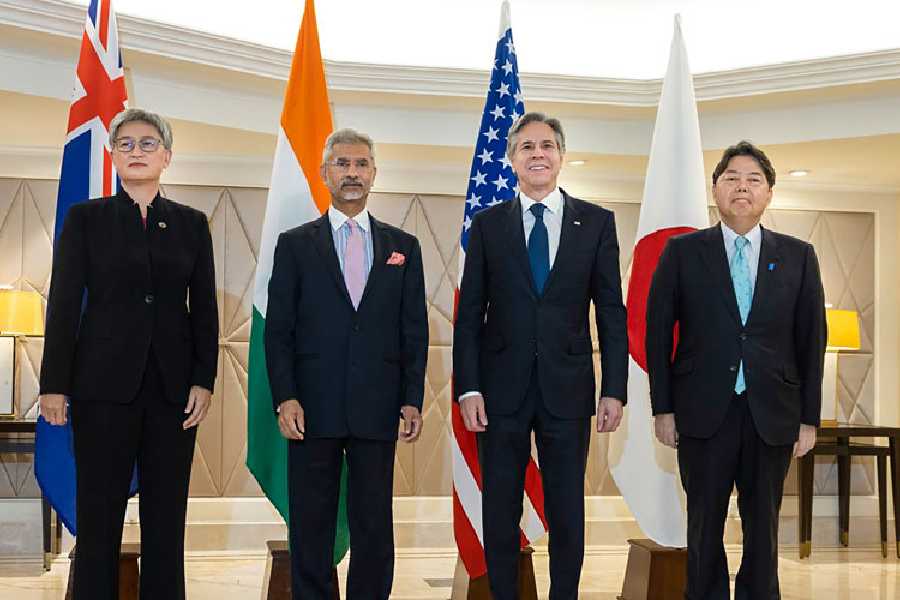The US House of Representatives has overwhelmingly passed the Quad bill which instructs the Biden administration to establish a Quad Intra-Parliamentary Working Group to facilitate closer cooperation between the US, Australia, India and Japan.
Quad is a plurilateral framework comprising India, Australia, Japan, and the US, with a shared commitment to upholding a free, open, and inclusive Indo-Pacific, amidst China's aggressive behaviour in the strategically vital South China Sea.
Passed by a roll call vote of 379 to 39 votes, the ‘Strengthen US-Australia-India-Japan Cooperation’ or the Quadrilateral Security Dialogue (Quad) bill says that the joint cooperation between the US, Australia, India and Japan should be strengthened.
It directs the State Department to submit to Congress, within 180 days of the bill's enactment, a strategy to increase engagement and cooperation with the Quad, and within 60 days of its enactment, to enter into negotiations with Japan, Australia and India to establish a Quad Intra-Parliamentary Working Group to facilitate closer cooperation.
It also would establish a US group, which would have a maximum of 24 members of Congress, to represent the US in the working group. It also would establish guidelines for annual meetings and group leadership. Under the bill, the group would be required to submit an annual report to the congressional foreign affairs committees.
Two Democratic lawmakers voted against the bill. One of them being Congresswoman Ilhan Omar from Minneapolis.
Introduced by Congressman Gregory Meeks, the bill requires the State Department to report to Congress a strategy for bolstering engagement and cooperation with the Quad.
The strategy shall address cooperation on issues including (1) preparing for the next pandemic, (2) co-developing new innovative technologies, and (3) deepening economic engagement and integration.
Meeks, Ranking Member of the House Foreign Affairs Committee, said the Quadrilateral Security Dialogue between the United States, Japan, Australia and India has been integral to promoting a free and open Indo-Pacific and advancing the US interests in the region.
China claims nearly all of the disputed South China Sea, though Taiwan, the Philippines, Brunei, Malaysia and Vietnam all claim parts of it. Beijing has built artificial islands and military installations in the South China Sea.
“I am proud to have advanced my legislation, the Strengthening the Quad Act, through the House of Representatives with strong bipartisan support. The Quadrilateral Security Dialogue between the United States, Japan, Australia and India has been integral to promoting a free and open Indo-Pacific, advancing US interests in the region, and bolstering our national security," Meeks said.
“My legislation works to ensure the Quad’s success and longevity by calling on the State Department to develop a strategy on bolstering democratic coordination in the Indo-Pacific region, and establishes a Quad Intra-Parliamentary Working Group to facilitate greater engagement and cooperation among the four legislatures,” Meeks said in a statement.
“With the rise of authoritarianism around the world, it is vital our democracies work together to showcase the success of open societies and markets, promote democratic governance and international rules, and deliver real results,” he said.
Except for the headline, this story has not been edited by The Telegraph Online staff and has been published from a syndicated feed.










